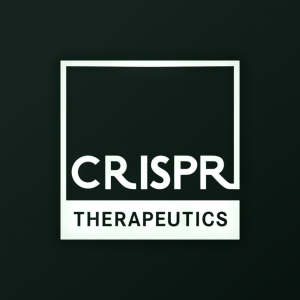CRISPR Therapeutics and Sirius Therapeutics Announce First Patient Dosed in Phase 2 Trial of SRSD107 for Thromboembolic Disorders in Europe
Rhea-AI Summary
CRISPR Therapeutics (NASDAQ: CRSP) and Sirius Therapeutics have announced the dosing of the first patient in a Phase 2 clinical trial of SRSD107, their co-developed Factor XI (FXI) siRNA therapy for preventing venous thromboembolism in total knee arthroplasty patients.
SRSD107 demonstrated promising results in Phase 1 trials, showing over 93% reduction in FXI levels and a twofold increase in aPTT relative to baseline. The treatment's effects were sustained for up to six months post-dosing, suggesting potential for semi-annual administration.
The therapy aims to address limitations of current anticoagulants by reducing pathological thrombosis while minimizing bleeding risk. The addressable market includes patients with atrial fibrillation, VTE, cancer-associated thrombosis, and various cardiovascular conditions where bleeding risk currently limits treatment options.
Positive
- None.
Negative
- Still in early clinical development phase with efficacy yet to be proven in Phase 2
- Complex competitive landscape in the anticoagulant market
News Market Reaction
On the day this news was published, CRSP declined 0.35%, reflecting a mild negative market reaction.
Data tracked by StockTitan Argus on the day of publication.
ZUG, Switzerland and BOSTON and SAN DIEGO and SHANGHAI, Sept. 22, 2025 (GLOBE NEWSWIRE) -- CRISPR Therapeutics (NASDAQ: CRSP), a biopharmaceutical company focused on creating transformative gene-based medicines for serious diseases, and Sirius Therapeutics, a clinical stage biotech company developing innovative small interfering RNA (siRNA) therapies for global markets, today announced that the first patient has been dosed in a Phase 2 clinical trial of SRSD107, a next-generation, long-acting Factor XI (FXI) siRNA for the prevention of venous thromboembolism (VTE) in patients undergoing total knee arthroplasty (TKA). SRSD107 is being co-developed by CRISPR Therapeutics and Sirius Therapeutics as part of a strategic collaboration to advance innovative treatments for cardiovascular and clotting-related diseases.
“We are pleased to announce that our Phase 2 clinical trial is now underway, and the first patient has been dosed,” said Naimish Patel, M.D., Chief Medical Officer of CRISPR Therapeutics. “Until now, existing anticoagulant options have been limited by bleeding risk, frequent dosing, and complex management challenges for patients with high thrombotic risk. SRSD107 offers the potential to reduce pathological thrombosis while minimizing bleeding risk, with sustained but reversible pharmacodynamic effects and the possibility of infrequent dosing. We look forward to exploring how this differentiated approach could meaningfully improve outcomes for patients in need.”
“We are very excited to announce that the first patient has been dosed in our Phase 2 trial of SRSD107, marking a significant milestone for this program,” said Patrick Yue, M.D., Chief Medical Officer of Sirius Therapeutics. “This study will evaluate clinical efficacy as proof of concept for Factor XI inhibition using our siRNA approach, building on the positive results from our Phase 1 trials, and we look forward to the progress of this trial.”
The ongoing Phase 2 clinical trial is a randomized, multicenter, global study evaluating the safety and efficacy of SRSD107 for the prevention of VTE in patients undergoing TKA. The trial will assess the anticoagulant effects and pharmacological profile of SRSD107 and help inform dose selection for future pivotal studies, with the goal of confirming its potential as a differentiated approach for reducing thrombotic risk in patients.
SRSD107 is designed to selectively inhibit FXI, a key driver of pathological thrombosis, with minimal impact on normal hemostasis. In prior Phase 1 clinical trials conducted in Australia and China, single doses of SRSD107 were well tolerated and demonstrated strong, sustained pharmacodynamic effects, including reductions of over
About Thromboembolic Disorders
Thrombosis, or blood clot formation, is the common underlying mechanism of most cases of myocardial infarction, ischemic stroke, and venous thromboembolism. Published data in The Lancet1 estimate that thromboembolic disorders are estimated to account for approximately one in four deaths worldwide.
About SRSD107
SRSD107 is a novel double-stranded small interfering ribonucleic acid (siRNA), that is designed to target the human coagulation factor XI (FXI) mRNA and inhibit FXI protein expression. By modulating the intrinsic coagulation pathway, SRSD107 has the potential to provide anticoagulant and antithrombotic effects.
About the CRISPR Therapeutics and Sirius Therapeutics Collaboration
CRISPR Therapeutics and Sirius Therapeutics entered into a strategic collaboration in 2025 to develop and commercialize novel small interfering RNA (siRNA) therapies for thromboembolic disorders and other serious diseases. The lead program, SRSD107, is a long-acting siRNA targeting Factor XI (FXI) with the potential to offer best-in-class efficacy and safety. Under the agreement, the companies will co-develop SRSD107 and share costs and profits equally. CRISPR Therapeutics will lead commercialization in the U.S., while Sirius will lead in Greater China. The collaboration also provides CRISPR Therapeutics with the option to license up to two additional siRNA programs. This partnership expands CRISPR Therapeutics’ therapeutic portfolio into RNA-based medicines, complementing its ongoing efforts in gene editing and broadening its impact across serious and chronic diseases. For Sirius, the collaboration marks a major milestone in its mission to deliver innovative RNA-based therapies globally, leveraging deep expertise in siRNA design and delivery.
About CRISPR Therapeutics
Since its inception over a decade ago, CRISPR Therapeutics has evolved from a research-stage company advancing gene editing programs into a leader that celebrated the historic approval of the first-ever CRISPR-based therapy. The Company has a diverse portfolio of product candidates across a broad range of disease areas including hemoglobinopathies, oncology, regenerative medicine, cardiovascular, autoimmune, and rare diseases. In 2018, CRISPR Therapeutics advanced the first-ever CRISPR/Cas9 gene-edited therapy into the clinic to investigate the treatment of sickle cell disease and transfusion-dependent beta thalassemia. Beginning in late 2023, CASGEVY® (exagamglogene autotemcel [exa-cel]) was approved in several countries to treat eligible patients with either of these conditions. The Nobel Prize-winning CRISPR technology has revolutionized biomedical research and represents a powerful, clinically validated approach with the potential to create a new class of potentially transformative medicines. To accelerate its efforts, CRISPR Therapeutics has formed strategic partnerships with leading companies, including Vertex Pharmaceuticals. CRISPR Therapeutics AG is headquartered in Zug, Switzerland, with its wholly-owned U.S. subsidiary, CRISPR Therapeutics, Inc., and R&D operations based in Boston, Massachusetts and San Francisco, California. To learn more, visit www.crisprtx.com.
CRISPR THERAPEUTICS® standard character mark and design logo are trademarks and registered trademarks of CRISPR Therapeutics AG. CASGEVY® and the CASGEVY logo are registered trademarks of Vertex Pharmaceuticals Incorporated. All other trademarks and registered trademarks are the property of their respective owners.
About Sirius Therapeutics
Sirius is a global, clinical-stage biotech company developing innovative siRNA therapies focusing on the treatment of chronic diseases. The Company’s pipeline is centered around three key franchises with mega blockbuster potential: coagulation disorders, cardiometabolic diseases, and obesity. Sirius’ most advanced investigational programs include SRSD107, a FXI inhibitor targeting the anticoagulation market, SRSD216, an inhibitor of Lp(a) synthesis intended to address atherosclerotic cardiovascular disease, and SRSD384, an INHBE inhibitor for managing obesity.
Founded in 2021 by a world-class leadership team and investors, Sirius has established an innovation center in the United States and a translational medicine center in China. Sirius has raised nearly US
CRISPR Therapeutics Forward-Looking Statement
Statements contained in this press release regarding matters that are not historical facts are “forward-looking statements” within the meaning of the Private Securities Litigation Reform Act of 1995. Because such statements are subject to risks and uncertainties, actual results may differ materially from those expressed or implied by such forward-looking statements. Such statements include, but are not limited to, statements made by Drs. Patel and Yue in this press release, as well as regarding any or all of the following: (i) CRISPR Therapeutics’ preclinical studies, clinical trials and pipeline products and programs, including, without limitation, expectations regarding data, safety and efficacy generally; (ii) data included in this press release, as well as the ability to use data from ongoing and planned clinical trials for the design and initiation of further clinical trials; (iii) the status and clinical progress of the SRSD107 clinical program and development timelines for such program; (iv) CRISPR Therapeutics’ strategy and goals; (v) the future activities of the parties pursuant to the collaboration and the expected benefits of CRISPR Therapeutics’ collaboration with Sirius Therapeutics; and (vi) the therapeutic value, development, and commercial potential of gene editing and delivery technologies and therapies, including CRISPR/Cas9. Risks that contribute to the uncertain nature of the forward-looking statements include, without limitation, the risks and uncertainties discussed under the heading “Risk Factors” in its most recent annual report on Form 10-K and in any other subsequent filings made by CRISPR Therapeutics with the U.S. Securities and Exchange Commission. Existing and prospective investors are cautioned not to place undue reliance on these forward-looking statements, which speak only as of the date they are made. CRISPR Therapeutics disclaims any obligation or undertaking to update or revise any forward-looking statements contained in this press release, other than to the extent required by law. This press release discusses investigational therapies and is not intended to convey conclusions about efficacy or safety as to those investigational therapies or uses of such investigational therapies. There is no guarantee that any investigational therapy will successfully complete clinical development or gain approval from applicable regulatory authorities.
Sirius Therapeutics Forward Looking Statement
This press release may contain certain “forward-looking statements” which are not historical facts, but instead are predictions about future events based on Sirius Therapeutic’s current beliefs, assumptions and expectations, commonly identified by words such as "would", "may", "expects", "believes", "plans", "intends", "projects" and other terms with similar meaning. Although we believe that our predictions are reasonable, future events are inherently uncertain, and our actual future results or performance may be materially different from what we expect. Accordingly, you are strongly cautioned that reliance on any forward-looking statements is subject to significant known and unknown risks and uncertainties. All forward-looking statements contained herein are qualified by reference to the cautionary statements set forth in this section. All information provided in this press release is as of the date of this press release and are based on assumptions that we believe to be reasonable as of this date, and we do not undertake any obligation to update any forward-looking statement, except as required under applicable law.
Investor Contact:
+1-617-307-7503
ir@crisprtx.com
Media Contact:
+1-617-315-4493
media@crisprtx.com
1 Lozano R, Naghavi M, Foreman K, et al. Global and regional mortality from 235 causes of death for 20 age groups in 1990 and 2010: a systematic analysis for the Global Burden of Disease Study 2010. Lancet. 2012;380, 2095-1128.








